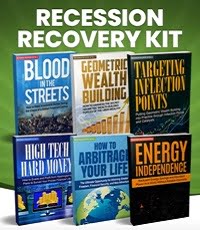
We’re not complaining. Without the wet weather we would have never discovered the hole in the bottom of our shoe. Nevertheless, we bring this up to make the point that the seemingly impossible happens all the time.
Last August, for instance, something absolutely ridiculous occurred…during the summer twilight the world was preparing for mass inflation and mass deflation in tandem. This manifested for everyone to see when, in broad daylight, $1,820 per ounce gold and 1.98 percent 10 Year Treasury yields came into existence simultaneously. If we hadn’t witnessed this extreme and illogical price disparity with our own two eyes we’d say it was impossible. Yet it happened all the same.
By all accounts, what the world learned last summer was what happens when the Fed borrows vast quantities of money into existence and uses it to buy government debt. For a time, gold prices go up and bond yields go down. But what happens after such devious money games are played is what has yet to be discovered.
Perhaps, we will soon find out…
So far this year stocks have been going up nearly as fast as gas prices. Year to date the S&P 500’s up over 12 percent. Gold, on the other hand, has sagged to the mid $1,600s.
More ominously, on March 19th, yields on 10 Year Treasuries jumped above 2.37 percent. Could this be a signal the great government debt bubble, which has been continuously puffing up over the last 30-years, is coming to an end?
Insightful Instruction from Japan
Obviously, the Fed is determined to prevent this from happening. They’ve promised to keep the federal funds rate near zero until late 2014. Still, despite their ardent resolve, they may not be successful…particularly if the economy improves.
After years of heavy handed market intervention by the Fed, a perverse paradox has taken place. The Fed wants low interest rates to boost the economy. Yet an improving economy entices money to exit treasuries and chase higher returns in higher risk assets like stocks. If money flows out of government debt too rapidly, treasury investors may panic and dump their holdings causing yields to spike upward while depressing the economy.
In this respect, the sweet spot for the economy is growth ranging from 1-to-2 percent and a flat stock market. Anything less and the Fed will have to print money to keep debt deflation from taking over. Anything more and treasury markets could destabilize.
But before things really get out of hand in the United States we suspect there will be some insightful instruction offered up by Japan…
If you didn’t know it, Japan’s public debt is 200 percent of GDP. By comparison, that’s double that of the United States. Different than the United States, however, Japan has financed its debt domestically.
The way Japan has been able to get by without borrowing from foreigners is through its positive trade balance. By exporting more than they import Japan’s population could use their proceeds to support their government’s budget gaps. But those days may have come to an end…
Japan Will Take the World’s Breath Away
Years ago, when New Deal policies rocketed U.S. government debt into the stratosphere, the FDR brain trust came together to dismiss the concern. At the center of the brain trust was John Maynard Keynes…the grandfather of public spending. Together they came up with a new theory of public debt so indifferent, and cavalier, it excused the politicians in power and dumbfounded the opposition.
In a 1958 speech, the late William F. Buckley Jr. recounts the saga…
“Depicting the intoxicating political consequences of Lord Keynes’s discovery, the wry cartoonist of the Washington Times Herald drew a memorable picture. In the center, sitting on a throne in front of a maypole, was a jubilant FDR, cigarette tilted up almost vertically, a grin on his face that stretched from ear to ear. Dancing about him in a circle, hands clasped together, their faces glowing with ecstasy, the braintrusters, vested in academic robes, sang the magical incantation, the great discovery of Lord Keynes: ‘WE OWE IT TO OURSELVES.’
“With five talismanic words, the planners had disposed of the problem of deficit spending. Anyone thenceforward who worried about an increase in the national debt was just plain ignorant of the central insight of modern economics: What do we care how much we – the government – owe so long as we owe it to ourselves? On with the spending.”
Here at the Economic Prism, like Buckley, we take issue with Keynes’ insight. But, at the moment, that’s beside the point. For the point is, unlike the United States, Japan has owed their massive debt to themselves. But, alas, that may now be changing…
In 2011, Japan ran a trade deficit for the first time since 1980. What’s more, in January, Japan ran a trade deficit of $5.4 billion…its largest monthly trade deficit ever. If this keeps up Japan will have to turn to foreign investors to finance their government debt. That means Japan will no longer owe it to themselves.
Moreover, at a debt to GDP level of 200 percent, who in their right mind will buy Japan’s government debt…especially when their 10 year bond’s yielding just 1 percent?
No doubt, when push comes to shove, we fully expect the Bank of Japan will monetize the debt. What come after will take the world’s breath away.
Sincerely,
MN Gordon
for Economic Prism
Return from Japan Will Take the World’s Breath Away to Economic Prism






Pingback: Japan Will Take the World’s Breath Away, Part II :
Pingback: Japan Will Take The World’s Breath Away, Part II
Pingback: Are You Ready?
Pingback: Japan Will Take the World’s Breath Away, Part II | Intellihub.com